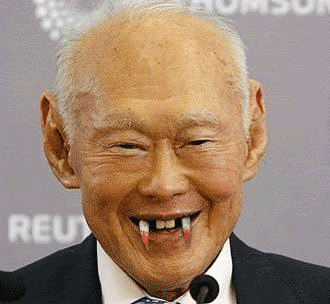<TABLE cellSpacing=0 cellPadding=0 width=452 border=0><TBODY><TR><TD vAlign=top width=452 colSpan=2>March 17, 2009, 9.01 pm (Singapore time)

</TD></TR><TR><TD vAlign=top width=452 colSpan=2>US housing starts, permits post unexpected jump
<TABLE class=storyLinks cellSpacing=4 cellPadding=1 width=136 align=right border=0><TBODY><TR class=font10><TD align=right width=20> </TD><TD>Email this article</TD></TR><TR class=font10><TD align=right width=20>
</TD><TD>Email this article</TD></TR><TR class=font10><TD align=right width=20>
 </TD><TD>Print article </TD></TR><TR class=font10><TD align=right width=20>
</TD><TD>Print article </TD></TR><TR class=font10><TD align=right width=20>
 </TD><TD>Feedback</TD></TR></TBODY></TABLE>
</TD><TD>Feedback</TD></TR></TBODY></TABLE>
WASHINGTON - US home construction starts and permits posted a surprise jump in February from 50-year low levels in a positive sign for the moribund home market at the epicentre of global financial crisis.
Housing starts - or privately owned new homes on which construction has started - soared 22.2 per cent to a seasonally adjusted annual rate of 583,000 units after seven months of decline, the Commerce Department said.
It was much higher than the revised January estimate of 477,000 and consensus forecast of 450,000.
Permits to build new homes, an indicator of future activity in the housing sector, rose 3 per cent to a seasonally adjusted annual rate of 547,000 in February, the department said.
It was above the revised January rate of 531,000 and consensus forecast of 500,000.
A home mortgage meltdown triggered financial turmoil and plunged the world's biggest economy into recession in December 2007.
Starts and permits were at their lowest pace in January since the Commerce Department began tracking the data in 1959. -- AFP
</TD></TR></TBODY></TABLE>

Golden Period is BACK! *hee*hee*

</TD></TR><TR><TD vAlign=top width=452 colSpan=2>US housing starts, permits post unexpected jump
<TABLE class=storyLinks cellSpacing=4 cellPadding=1 width=136 align=right border=0><TBODY><TR class=font10><TD align=right width=20>
 </TD><TD>Email this article</TD></TR><TR class=font10><TD align=right width=20>
</TD><TD>Email this article</TD></TR><TR class=font10><TD align=right width=20>
 </TD><TD>Print article </TD></TR><TR class=font10><TD align=right width=20>
</TD><TD>Print article </TD></TR><TR class=font10><TD align=right width=20>
 </TD><TD>Feedback</TD></TR></TBODY></TABLE>
</TD><TD>Feedback</TD></TR></TBODY></TABLE>WASHINGTON - US home construction starts and permits posted a surprise jump in February from 50-year low levels in a positive sign for the moribund home market at the epicentre of global financial crisis.
Housing starts - or privately owned new homes on which construction has started - soared 22.2 per cent to a seasonally adjusted annual rate of 583,000 units after seven months of decline, the Commerce Department said.
It was much higher than the revised January estimate of 477,000 and consensus forecast of 450,000.
Permits to build new homes, an indicator of future activity in the housing sector, rose 3 per cent to a seasonally adjusted annual rate of 547,000 in February, the department said.
It was above the revised January rate of 531,000 and consensus forecast of 500,000.
A home mortgage meltdown triggered financial turmoil and plunged the world's biggest economy into recession in December 2007.
Starts and permits were at their lowest pace in January since the Commerce Department began tracking the data in 1959. -- AFP
</TD></TR></TBODY></TABLE>

Golden Period is BACK! *hee*hee*
